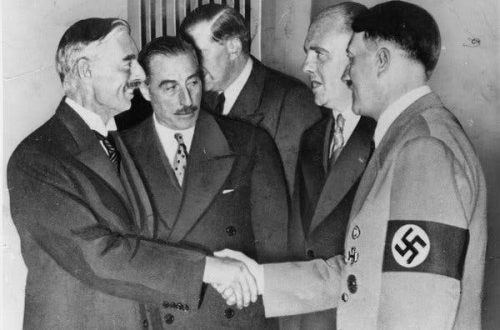In 1991 Roger Scruton wrote a very insightful article about apologists for Communism including Eric Hobsbawm and Arthur Scargill for the Los Angeles Times. He concluded with the following sentence:
At least let us henceforth insist that the term communist is a term of abuse, that anti-communism is not a crime but a duty and that those who speak the language of communism are as much apologists for mass murder as those who speak the language of the Nazis.
Those who have been following my posts in this series will be aware that I normally just enclose an extract from the articles that I have selected. In this instance, as I felt it would be beneficial to use the full article, I contacted Professor Scruton who has kindly provided me with permission to do just that. I am therefore pleased to copy the full article below. I welcome comments.
The Day of Reckoning for the Apologists
Western collaborators with Soviet communism must be held accountable
Roger Scruton,
Los Angeles Times, September 5, 1991, p.7.
Before the page of history is turned, I wish to make a plea for justice against those responsible for the greatest crime in history. There have been tyrants, mass murderers and dictators from the beginning of time, but their crimes were limited by their own fatigue and never extended beyond their brief lifetimes. With communism, a new kind of criminality entered onto the stage of history, although one that had been briefly foreshadowed during the French Revolution.
Lenin’s “party of the new type” was organized from the beginning as a self-perpetuating conspiracy that was to control every point of power and influence in society and recognize no opposition to its goals. Moreover, it was freed from all accountability, not only by the fact that there was no other power within society that could challenge it, but also by its own “revolutionary morality” (according to which everything was permitted) provided only that it served the cause. If it were discovered that “full communism” had been brought no nearer by this or that mass murder or forced transportation, then this was at worst an “error” for which no one, least of all the party, could be blamed.
In short, the Soviet Communist Party had the power to commit every crime, indeed the right to commit it, and the total exculpation that its ideology provided. Not surprisingly, it went on to acquire the greatest criminal record that the world has ever known. It is not merely that more suffering has been caused by the Soviet Communist Party than by any other organization; the point is that it was caused deliberately by a party that regarded murder, theft, deception and persecution as legitimate forms of conduct.
But how do you punish a party? The question was raised at Nuremberg and answered in the only conceivable way: The Nazi Party was outlawed, its property confiscated and reparations exacted. As for the members themselves, their guilt was not uniform. There were those who could claim partial or even total ignorance of the party’s crimes; and there were those who not only knew of what was happening but played an active part in promoting it. The resulting juridical problem is immensely intricate: But no one can doubt that the Germans (compelled, it is true, by the victorious Allies) were able to wipe the slate clean, and to enter postwar Europe duly shriven of their monstrous wrongdoing. Something similar has to happen in the Soviet Union, if the people of that vanishing empire are ever to be fully at peace with themselves in the years of reconstruction.
The majority of those who were caught up in the crimes of the Communist Party could plausibly argue that they had no choice: The party machine made its decisions inscrutably and unanswerably; to go against the party was the act of a saint or a madman. The man in the street would keep as low a profile as he could and strive to do nothing worse than the party required. The same excuse cannot be offered by those in the West who promoted and apologized for Soviet communism. Should not they too be facing their day of reckoning?
Again, their guilt is not uniform. There were those, like the historian and British party member Eric Hobsbawm, who clearly knew what was happening and nevertheless chose to exonerate the party. There were those like Arthur Scargill, leader of the British mine workers, who enjoyed such privileges from the official “trade unions” of the communist empire that they were reluctant to examine the organizations’ criminal record. But both kinds of collaborators did their best to damage Western resistance to communist expansion, and neither felt any compunction in describing their opponents as “fascists” and tarring them with the brush of Nazism. Surely the time has come to call these villains to account. Witch hunts are indeed unjust, since there are no witches. But there are plenty of communists, and plenty of apologists: Our unwillingness to hunt them down has been one cause of the Great Socialist Experiment’s longevity.
The KGB has volunteered to return its former agent, Briton George Blake, to serve his prison term in England. But it would be nice to know a few more names: not of agents only, but of those many “peace activists” who received Communist Party privileges in exchange for their eager denunciations of Western power. At least let us henceforth insist that the term communist is a term of abuse, that anti-communism is not a crime but a duty and that those who speak the language of communism are as much apologists for mass murder as those who speak the language of the Nazis.


